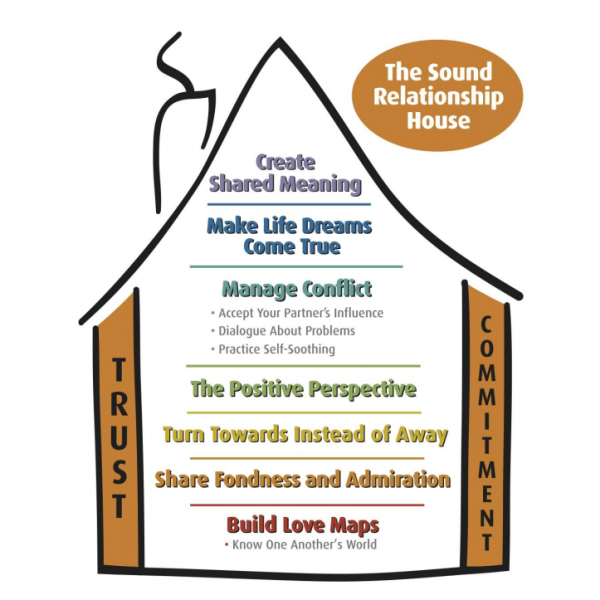Speaker Listener Guidelines for Building Recovery Maps
EXERCISE
Instructions
Use the following guidelines that define the Speaker and Listener roles for the Build Recovery Map card deck exercises. It is important to try to stay in these roles until the Speaker feels understood, and then switch roles with the Listener becoming the Speaker.
Speaker
Share only what you are comfortable sharing. See if you can identify at least one or more feelings you have about what you are sharing. The key is to focus on yourself, not your partner, describe your thoughts, feelings, and needs.
In disclosure, there are different levels of sharing of details and specifics. It is appropriate to limit disclosure to what feels comfortable.
For example, if you share about something you are struggling with, try to identify what is happening for you and how you feel about it. For example, “I am nervous about tomorrow’s office party and how I might exit if I feel uncomfortable about the drinking part.” If you are not comfortable talking about the specific content, you could say “I am thinking through how to handle a situation differently.”
If you share something positive about what is happening in your recovery, you could identity what positive thing happened and how you felt about it. For example, “I had a good meeting tonight. Several people spoke about struggles with perfectionism, and I see how I too really raise the bar for myself and put pressure on myself to not accept my imperfections. It helped to focus on the idea of progress, not perfection.” Sharing less, for example, could sound something like this: “I had a good meeting this evening, several things people said really hit home.”
Finally, while there are different levels of sharing, there are also different reasons. You may simply want to update your partner on what is happening, or you may have a need or a request for your partner.
For example:
- “I just want you to listen and understand and know what is going on with me.”
- If you want something from your partner beyond just listening, you could say: “I would like help with (specific request)” or, “I would like to (name what you want to have happen).” For example, “Somebody shared stuff tonight that hit close to home. I would like a bit of time alone to just decompress. Thanks.”
The Listener should decide if the request is neutral, helpful, or harmful to his/her own recovery–well- ness.
Listener
Take this opportunity to deepen empathy and just listen to what your partner is saying.
Try not to interrupt or add your own thoughts and feelings. The goal is to empathize and validate your partner’s thoughts, feelings and needs. This is the gold standard in communication!
Empathy
You communicate to your partner that you understand what your partner is expressing and feeling, and that you care.
Empathy has several steps:
- Listen to what partner is feeling, not just saying– focus on emotions
- Put yourself in your partner’s shoes, imagining what this emotional experience is like for your partner. Suspend your own thoughts and feelings for the moment, the focus should be on your partner.
- Communicate what you understand your partner is feeling (emotions) and why your partner feels that way (content).
Validation
You communicate that you understand and accept without judgment your partner’s feelings and that it makes sense to you given your partner’s perspective. The bottom line: Convey, “You have a right to have these feelings.”
Validation has several steps:
- Accept and respect that this is your partner’s experience based on your partner’s perceptions, feelings, history, biology, and emotional makeup (psychology).
- Actively communicate your understanding and acceptance that this is how the speaker feels and sees things.
- Encourage additional communication. If the speaker starts to get upset with your response, then the odds are the speaker is not feeling validated.
Neither empathy nor validation has to do with placating, agreeing, liking, disliking, or determining if something is “true” (from your perspective). Every feeling is valid, based on the person’s perceptions, beliefs and history. Continued dialogue may change that perception or belief, but in healthy relationships partners need to be able to express their true thoughts and feelings at the time.
An example of an empathic and validating response would be to say something like this:
1. So you are feeling… (upset, happy, fearful, confused, excited, etc.)
2. About… (name the specific events, people, circumstances related to feeling),
3. Because… (express the reason, motivation, belief, you hear that explains the speaker’s feelings)
4. And I can understand why you feel this way; or “That makes sense.”
1, 2, 3 above reflects empathy. 4 supports validation

